- Home
- Fay Weldon
The New Countess Page 9
The New Countess Read online
Page 9
Robert had said as much to his son, who responded by saying, well, Alan would say that, wouldn’t he, being a countryman, hating all things mechanical and only too happy to excuse his own inefficiencies by blaming the Jehu. The test runs continued.
Even one’s own children rose up against one, Robert lamented. Isobel was right. It would probably be wise if Rosina did not publish her book about savages, given her gift for stirring up trouble.
Strachan was warning the family against any mention of the King’s visit to the press. ‘Let a word slip, and they’ll be down to set up their cameras. The yellow press is both ungovernable and unstoppable. I have even known them break into private rooms to prove their own distasteful theories. But we will take our precautions. I’ll have a couple of my men stationed outside the King’s door all night.’
‘One of the servants can do that,’ said his Lordship, and Ponsonby shuffled a little and coughed, and said, ‘It might be wiser if the Inspector’s men stood sentry.’
‘I don’t see why,’ said his Lordship peevishly.
‘So they know to whom it is wise to allow entry,’ said Ponsonby.
‘Mrs Keppel, you mean,’ said Robert and Mr Ponsonby looked pained. Robert said he was sure her Ladyship would welcome Inspector Strachan’s men at Dilberne Court sometime in the future.
Let them fight it out: he had other more serious matters to think about. To arm one native tribe against another seemed an obvious solution, and was often tried, except it usually ended badly.
Another Week, Another Sunday
Sunday 3rd September 1905, Dilberne
‘Mother-in-law,’ said Minnie. Isobel and she were walking home from church side by side. They went down the narrow back lane that led to Dilberne Court. Connor and Edgar followed with their nannies, Connor in his perambulator and Edgar sometimes in his stroller, sometimes walking. They made sluggish progress. Her father-in-law and Arthur, who had things to do, had gone ahead, rather than slow their pace to one determined by the existence of women and children. The hedgerows crowded in on them, a wild tangle of hawthorn, blackthorn, field maple, shiny hornbeam and holly, convolvulus entwining with pink dog rose flanked by purple-headed thistle and white cow-parsley, with the more solid elm, ash, beech and oak pushing up here and there – the English countryside was intolerably, almost painfully lovely and romantic but Minnie still found herself longing for the simplicity of the flat Illinois landscape.
‘Mama,’ she said. It had taken her weeks to find the courage and to get the words right. ‘It had occurred to me that Arthur and me and the children could perfectly well move into the Dower House. We wouldn’t be in the way of the builders, and they could get on with taking up the floors without having to worry about the servants carrying hot water for the nursery.’
‘Arthur and I,’ said Isobel, ‘not Arthur and me. Nobody’s worrying. Why are you worrying about the servants? The servants will go on carrying water from the kitchens, just as they have since the house was built.’
It was a hot day. Isobel was wearing a dress in grey and white shepherd’s plaid voile trimmed with pink silk, a wide embroidered bertha and a little white wing collar: her hat had a modest brim, but such a mass of lacy foliage piled upon it, Minnie thought, that it quite echoed the tangle of hedgerows they walked between. She herself wore a serviceable lined tucked white shirt, a circular navy blue skirt in grosgrain and a straw boater, and was aware that Isobel must think her very plain. Poor little Edgar had been dressed in a tweed suit – a miniature of the one his grandfather wore to church when he had time enough from affairs of State to attend – with a wing collar and the black Oxford lace-ups which Nanny Margaret insisted he wore – ‘His little feet need the support’ – and were so stiff and uncomfortable that he preferred his stroller than to run around as he normally did. Surely nature knew best: children were not born with leather boots on their feet, but that was not a concept familiar to Nanny. ‘Few people know how to take a walk. The qualifications are endurance, plain clothes, old shoes, an eye for nature, good humour, vast curiosity, good speech, good silence and nothing too much.’ No use quoting Emerson to Nanny, or any of the Dilbernes, come to that.
‘And the Dower House? But it’s perfectly horrid,’ said Isobel. ‘You can’t possibly live there. Tiny windows, tall rooms, the staircase is crumbling; it’s dreadfully damp and swallows and bats are nesting in the attics. I went inside the other day and the architect, old George Bodley – I think I introduced you – was quite horrified.’
‘So you’ll be doing it up?’ asked Minnie, hopefully.
‘Oh no,’ said Isobel. ‘No one “does” dower houses “up”. I suppose that’s American usage. Doing dower houses up is unlucky.’ And, as lately upon so many other subjects, she refused to be drawn. But of course, thought Minnie; dower is short for dowager. It’s the house where a deposed lady of rank is sent to live when her husband dies and the inheritance passes on. To do it up would be to invite that day: Minnie was hardly in a position to bring the subject up again.
But it was a pretty house, though indeed dilapidated; quite small and cosy – only one or two degrees up from a farmhouse – a whole quarter of a mile away from Dilberne Court. The staircase could be mended, the windows enlarged, the damp got rid of, there was a barn at the back that could be used as a studio – oh, the old dreams of doing something other than wearing clothes and being polite – the swallows could be seen as company, and she would live happily ever after with Arthur, as mistress of her own domain, her children her own, not Nanny’s. Dreams, dreams.
One day in the far, far distant future, if it hadn’t been allowed to crumble away altogether, the Dower House, or one like it, would be her own destiny. Well, as had Rosina, she had made her bed and must lie on it. All women had to.
But Isobel was talking.
‘Besides, Minnie, the children’s proper place is in the family nursery, where their own father was brought up and their grandfather before that. And change is the last thing Arthur wants; do you really want to upset him just when he’s so busy and the business is going so well? I am his mother; I do know what’s going on in his head.’
No mention of Rosina. Rosina was seldom mentioned. No one knew what went on in Rosina’s head, which was presumably the trouble. And Minnie herself had been outflanked so simply. Her request had been anticipated, she suspected, and her routes of escape barred.
When they got back to the Court, Edgar and Connor went up to Nanny for their flaked cod and white sauce lunch with mashed potatoes and a slice of decorative tomato, and with any luck for Edgar to change out of his church clothes into a sailor suit and different shoes. Nanny thought going barefoot would make his arches fall.
The Earl was there for lunch. He had fallen asleep in church, he said, and asked Minnie what the readings had been. Minnie – who had been so busy brooding she couldn’t remember a thing – shook her head mutely, and Isobel quickly stepped in. ‘John, six, twenty-four to thirty-five,’ said Isobel, ‘Jesus said unto them I am the bread of life. Whoever comes to me will never be hungry and whoever believes in me will never be thirsty.’
‘Which is why you allow us a proper luncheon after church, I daresay,’ said his Lordship to his wife, ‘instead of the frenchified lunches you’re so keen on nowadays.’
‘Praise the Lord,’ said Arthur, ‘as they say back home in Chicago, do they not, Minnie?’
Minnie smiled sweetly as ever, though she felt like crying. They were not unkind, but they would never allow her to be one of them, not even Arthur.
Lunch was potage aux petits pois, filet de sole à la sauce aurore, chaud-froid de volaille, gigot d’agneau, gelée de fraises and bouchées d’abricots. Arthur left for his workshops after the gigot, pecking Minnie goodbye and saying he was sorry he couldn’t be there when the children were brought down for Sunday tea, but their grandmother would be, wouldn’t she, and Isobel said, ‘Of course.’ His Lordship commented that the Dilberne table was exceptionally good these days, frenc
hified or not, so presumably Isobel must be very near to God. Isobel remarked that considering the manna that descended to the servants’ hall on a daily basis it was certainly the case. His Lordship suggested that the Rev. Stacey read the staff Exodus sixteen, verses one to thirteen at Evensong and that thus reassured they stopped their grumbling. The servants should be grateful for what they got.
‘Exodus chapter sixteen, verses one to thirteen,’ Isobel explained to Minnie, ‘is when the Israelites grumble against the Lord because they’re hungry, and he promises them meat in the evening and all the bread they want in the morning, and they end up getting manna. They now think we’re in loco dei and grumble because they don’t get manna all the time.’
At least, his Lordship put in, Rosina hadn’t been near them lately stirring up trouble with her questionnaires. Isobel made a ‘Don’t mention that name’ face and Minnie thought: ‘If my life is hardly worth living now, with these two as my allies, what would it be like if I had them as enemies?’
His Lordship asked her what she had been doing with her life and Minnie said she had had a letter from her mother. Her mother had suggested she go home to Chicago for the Christmas month. Tessa missed her grandchildren.
‘A letter from your mother!’ cried Isobel. ‘Why didn’t you tell me? How is the dear old soul?’
‘She is very well, said Minnie, ‘and very busy. She is setting up an international arts and crafts exhibition at the Institute.’ ‘Dear old soul’ did not seem to Minnie to be an adequate description of her mother, who though she was buxom and lacked sophistication in both life and dress, was amazingly good-natured and energetic. She rather suspected, judging from an indiscreet word or two in the letter, that Tessa had taken up with a young arts and crafts jeweller whose work was central to the exhibition.
She also thought it better not to say that Tessa had mentioned Grace. ‘Grace sends her regards to her Ladyship,’ was what Tessa had actually written. ‘She and I mean to start a little art gallery and fabric shop in North Avenue. Grace turns out to have quite a business mind.’ Grace had been Lily’s predecessor as lady’s maid.
‘It’s not sensible to take the little ones to God’s Own Country, Minnie, and you know it, especially not to Chicago in Winter. They’d freeze to death. It’s remarkably cold and windy, I believe, isn’t it, Robert? You were once there for the World Fair.’
‘I was there in May,’ said his Lordship, ‘and it was pleasantly warm. Warm and windy enough,’ he added, ‘for the stench of the stockyards to get to us. But they do say it’s jolly cold in Winter.’
‘I could go on my own, leave the children. Mother isn’t too well, she has a bad leg or she’d come over to me.’ Lies, lies. What was she saying? She had been pushed back into childhood.
‘Chicago for Christmas is out of the question, anyway,’ said the Countess. ‘Robert’s youngest brother Alfred is coming over from Bombay to see his children and to be with the family. Did not Arthur tell you?’
‘Oh, of course,’ said Minnie. Arthur hadn’t. ‘How silly of me. My brain is all to pieces, these days.’
‘It’s motherhood,’ said Isobel cheerfully. ‘Besides, the King is coming just before Christmas for the shooting. You are wife to a Viscount. You need to be beside your husband at such a time.’
The Earl grunted. ‘Meanwhile the gamekeeper’s worrying about his chicks and my son’s bloody motors. Nasty, noisy, smelly things. Can’t understand why the boy doesn’t stick to horses.’
‘The King will understand,’ said Isobel. ‘He so loves his Daimler.’
‘Yes, but will the chicks understand?’ and Robert laughed heartily at his own joke and took some more strawberry ice cream.
That afternoon Minnie lay on her bed in the green room and cried a little, which in itself was consoling. She would have gone up to the nursery floor but the children were having their afternoon nap and Nanny would be guarding them like a dragon, breathing fire on anyone who came near. It was very hot and very quiet. She would have gone down to the servants’ hall for some gossip and conversation – she was sure it was livelier than any she got upstairs – but that was not the way one behaved. So she cried, brooded and half slept instead.
The builders were no longer in the room above, but dust motes from their labours the day before drifted down through the sunbeams. She thought there was a presence in the room, almost tangible, someone lurking in the brightness of the corner, a woman in a pale dress. She did not want to get up to see properly; simply closed her eyes to save the effort. She remembered that the servants said the green room was haunted. Servants were always saying that kind of thing; it gave them a good excuse not to carry coals or fetch water. The presence was not frightening. There just seemed to be some kind of pause in the continuum of things.
But she was glad when there was a tap on the door and Lily came in with a pile of under-things fresh up from the laundry. She was a sweet and friendly girl and a favourite with Isobel, being quite a skilled little dressmaker; Minnie thought she made a pretty figure today, her fair hair looped under her frilly cap, her figure lissom in its maid’s black dress – perhaps rather too tight a one. If she was in charge of her own house, she would think twice before employing a girl so pretty, and what’s more so quick and clever.
‘Is this room supposed to be haunted?’ asked Minnie.
‘Oh yes, ma’am,’ said Lily cheerfully. ‘Some kitchen maid hanged herself in here in 1723, put in the family way by the fourth Earl. But don’t you worry about it. I’ve never noticed a thing, and you and Lord Arthur will be back in the West Wing in no time. Besides, it’s not likely. What would a kitchen maid be doing up here? Now if it was the parlourmaid—’
‘I thought you had Sunday afternoons off,’ said Minnie, breaking off the anecdote, though she longed for more. If you gave staff an inch they took an ell, as Arthur would explain.
‘You have to get the laundry out of the way by Monday when everything starts again,’ said Lily, ‘time off or not. You sound just like Miss Rosina, always tut-tutting about conditions of work while finding extra stuff for us to do, like her parrot. You’re different. In fact, you’re quite a favourite in the servants’ hall.’
‘I don’t think I need to know that, Lily,’ said Minnie, carefully. This was certainly too familiar. On the other hand, times were desperate.
‘I don’t see why not, Miss,’ said Lily, pertly. ‘I always tell her Ladyship things. She likes to know what goes on. I’m her trusted spy. I’m good friends with Mrs Keppel’s lady’s maid.’
‘Tell me about Lady Rosina then,’ said Minnie.
‘What do you want to know?’
‘Where is she? Has she gone back to Australia?’
‘No, Miss. She’s staying with friends of the family at No. 3 Fleet Street and publishing a rude book. Lady Isobel’s brought in the lawyers to try and stop her. That’s why everyone’s acting so peculiar.’ She hesitated. ‘She gives me all her cast-offs.’
‘Someone gave me three pairs of silk stockings which proved far too small for me,’ said Minnie. ‘Great big, galumphing American girl that I am. They’re French with cherub lace inserts. Would they be of any use to you, Lily?’
‘Thank you very much, m’Lady. They certainly would.’
‘You can find them at the bottom of one of my stocking drawers.’
They were still neatly folded in tissue paper and a delicate oyster colour. Lily stroked the smooth, pale silk fondly. Minnie watched them go with some sorrow. They fitted well enough and she had looked forward to wearing them. But as Sir Francis Bacon said, knowledge was power, and she was sadly in lack of power and must do what she could to rectify the shortcoming. And perhaps God had taken notice and sent her Lily.
‘What goes on at No. 3 Fleet Street?’ asked Minnie.
‘I couldn’t say, m’Lady, though there was some talk about drink and drugs and goings-on. But that’s probably just wishful thinking. Everyone loves a scandal. Same as they likes a ghost. What else is there to thi
nk about, stuck away at the ends of the Earth? What does galumphing mean?’
‘Half-way between a horse galloping and a horse snorting, I guess.’
‘If I may say, m’Lady, I think you’re very elegant and gracious and not at all the galumphing kind. That’s more Lady Rosina’s style. She’s a great disappointment to her Ladyship. Thank you for the stockings. They do say a Mr Anthony Robin and his sister Diana live at No. 3. He’s in the book world, so I daresay our Miss Rosina has gone to live with them. Good riddance to a bad lot is what all the servants say, and thank God we don’t have the parrot pooing to put up with any more.’
‘That will be all, Lily,’ said Minnie. But she had what she wanted.
Arthur Invites Temptation
September 1905, The Gatehouse
The Gatehouse had been designed by James Wyatt in 1797 for a previous Earl. It was a vast and imposing – if rather less than graceful – stone arch which bridged the entrance to the long oak drive that led to Dilberne Court, substantial enough to serve as home to the gatekeeper but not much more. There was a door on the inner side of both piers leading to a windowed room, and a staircase up to a long room within the arch itself, long enough for a coach and four and a couple of out-riders to pass underneath. Old Tommy’s duties had been to answer the bell and open and close the iron gates that linked the piers, deter unwelcome strangers, report unwanted predators, and keep the drives swept and the high beech hedges in good order.
During one of her sporadic attempts to persuade Arthur to live apart from his parents, Minnie had been down with him to inspect the Gatehouse. Arthur could see no need for change. The West Wing was very comfortable and convenient for his work: the children were happy and settled. His mother’s enthusiasm for what her designer referred to as ‘refurbishment’ could not go on for ever – presumably when the royal shooting weekend had come and gone and Mrs Keppel been suitably impressed the hammerings and crashings and falling plaster would be a thing of the past. Minnie, Arthur concluded, was just a little homesick and suffering from one of the fits of restlessness which afflicted women every few weeks: what she really wanted, his father assured him, was another baby. He must see to it. Indeed, he meant to see to it, he just fell asleep so easily.

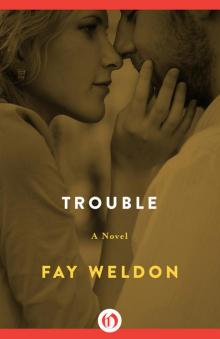 Trouble
Trouble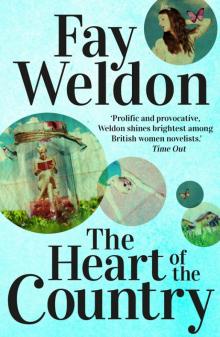 The Heart of the Country
The Heart of the Country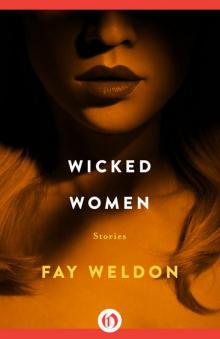 Wicked Women
Wicked Women Mischief
Mischief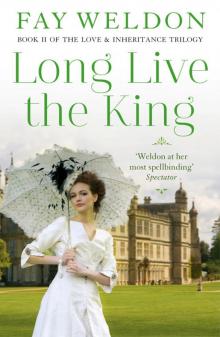 Long Live the King
Long Live the King Remember Me
Remember Me Worst Fears
Worst Fears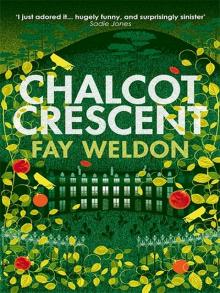 Chalcot Crescent
Chalcot Crescent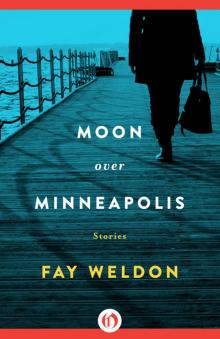 Moon Over Minneapolis
Moon Over Minneapolis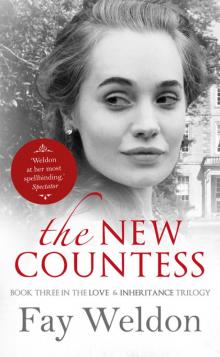 The New Countess
The New Countess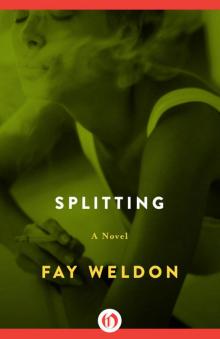 Splitting
Splitting After the Peace
After the Peace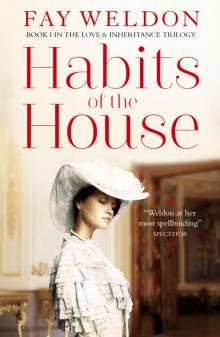 Habits of the House
Habits of the House Darcy's Utopia
Darcy's Utopia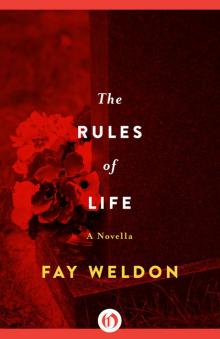 The Rules of Life
The Rules of Life Kehua!
Kehua! Before the War
Before the War Darcy's Utopia: A Novel
Darcy's Utopia: A Novel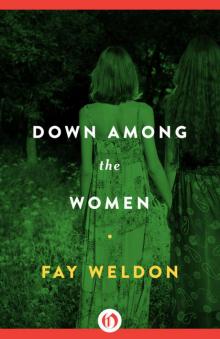 Down Among the Women
Down Among the Women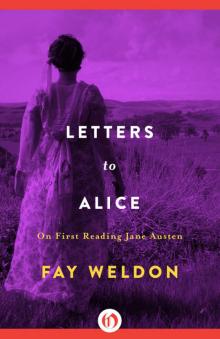 Letters to Alice
Letters to Alice 3 Great Historical Novels
3 Great Historical Novels Female Friends
Female Friends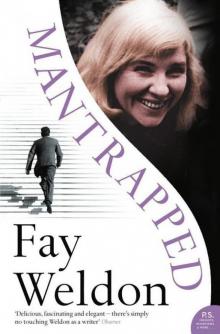 Mantrapped
Mantrapped The Bulgari Connection
The Bulgari Connection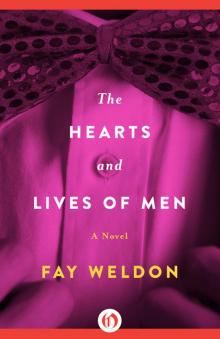 The Hearts and Lives of Men
The Hearts and Lives of Men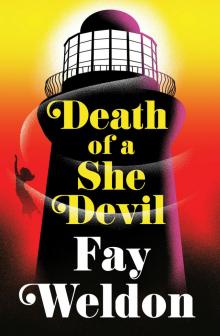 Death of a She Devil
Death of a She Devil